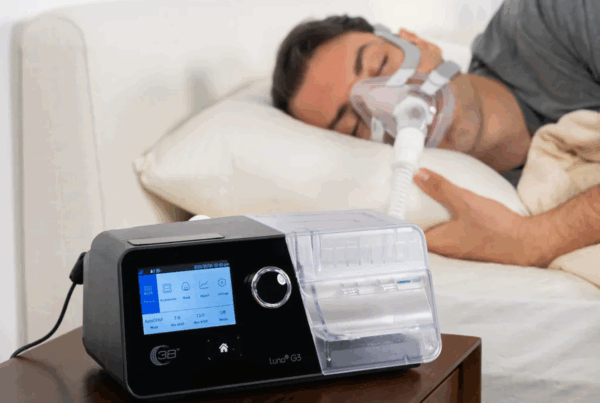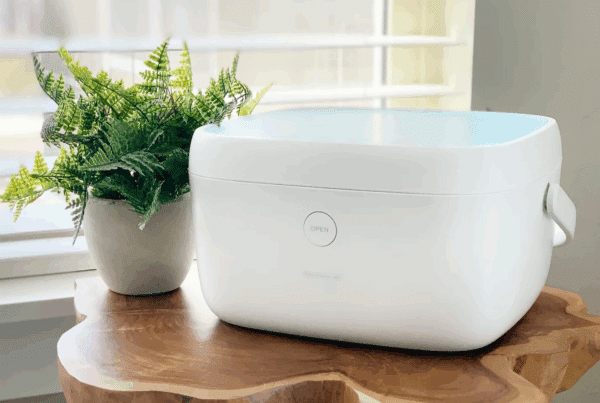Choosing the right CPAP mask is one of the most important decisions you can make for successful sleep apnea therapy. With new designs and improved technology available in 2025, patients now have more options than ever. Whether you struggle with comfort, claustrophobia, or leaks, finding the right mask style can make the difference between restless nights and consistent, effective therapy.
This guide will walk you through the best CPAP mask styles in 2025, the most popular models, and how to choose the one that best fits your needs.
Types of CPAP Masks
1. Nasal Masks
- Cover the nose only.
- Best for patients who breathe primarily through their nose.
- Provide a stable seal at higher pressures.
- Popular in 2025: ResMed AirFit N20, Philips DreamWisp.
Who it’s best for: Nose breathers, side sleepers, and those who prefer a lighter mask than full-face options.
2. Nasal Pillow Masks
- Sit at the entrance of the nostrils with soft pillows.
- Ultra-lightweight and minimal design.
- Allow a wide-open field of vision.
- Popular in 2025: ResMed AirFit P10, Philips DreamWear Nasal Pillow.
Who it’s best for: Patients with mild claustrophobia, glasses wearers, or those who want less bulk.
3. Full-Face Masks
- Cover both the nose and mouth.
- Ideal for mouth breathers or patients with frequent nasal congestion.
- Provide a strong seal at higher pressures.
- Popular in 2025: ResMed AirFit F20, Fisher & Paykel Vitera.
Who it’s best for: Mouth breathers, patients with high CPAP pressure needs, or those who frequently experience nasal blockage.
4. Hybrid Masks (Emerging in 2025)
- Combine nasal pillows with a mouth cushion.
- Reduce bulk while still accommodating mouth breathing.
- Gaining popularity for patients who need flexibility.
- Popular in 2025: ResMed AirFit F30i, Philips DreamWear Full Hybrid.
Who it’s best for: Patients who want a balance between minimal design and the security of full-face coverage.
Key Factors to Consider When Choosing a CPAP Mask
1. Sleeping Position
- Side sleepers may prefer nasal pillows or low-profile nasal masks.
- Back sleepers can comfortably use any style.
- Stomach sleepers often find nasal pillows the least intrusive.
2. Breathing Style
- Mouth breathers benefit from full-face or hybrid masks.
- Nose breathers can often use nasal or nasal pillow masks comfortably.
3. Pressure Settings
- Higher pressures typically require full-face or well-sealed nasal masks.
- Lower pressures work well with minimal nasal pillow masks.
4. Comfort & Claustrophobia
- If bulk makes you uncomfortable, try nasal pillows or newer hybrid masks.
- Patients prone to mask leaks or restless sleep may prefer a full-face option with strong headgear support.
5. Insurance & Replacement Schedules
- Most masks require replacement cushions every 3–6 months.
- Check with your insurance provider or DME (like Alpine Home Medical) to see what’s covered.
The Top CPAP Masks in 2025
- ResMed AirFit F20 – Best for full-face comfort and strong seal.
- ResMed AirFit P10 – Best lightweight nasal pillow option.
- ResMed AirFit N20 – Best all-around nasal mask.
- Fisher & Paykel Vitera – Best for full-face comfort at high pressures.
- Philips DreamWear Series – Best for flexibility and top-of-head tubing design.
- ResMed AirFit F30i – Best hybrid mask with minimal contact.
The “best CPAP mask” in 2025 depends on your sleep style, breathing habits, and comfort needs. With innovations like hybrid masks and more lightweight designs, patients now have excellent choices for therapy success.
If you’re unsure which mask is right for you, visit one of Alpine Home Medical’s Utah or Idaho locations for expert fittings, or set up a consultation to try different mask styles before you commit.
Most Common Questions From Our Customers
Can I use FSA or HSA funds for home medical equipment?
Yes! Most Alpine Home Medical products qualify as eligible medical expenses under IRS guidelines.
What if my FSA/HSA card doesn’t work at checkout?
Some plans require documentation or manual reimbursement. Save your Alpine receipt and contact your HR or plan administrator.
Do I need a prescription?
Some items (like CPAP machines or certain mobility aids) require a doctor’s order. Check with your provider or HR department.
Can I buy online and still use my benefits?
Yes — Alpine Home Medical accepts FSA/HSA cards online and in-store.














